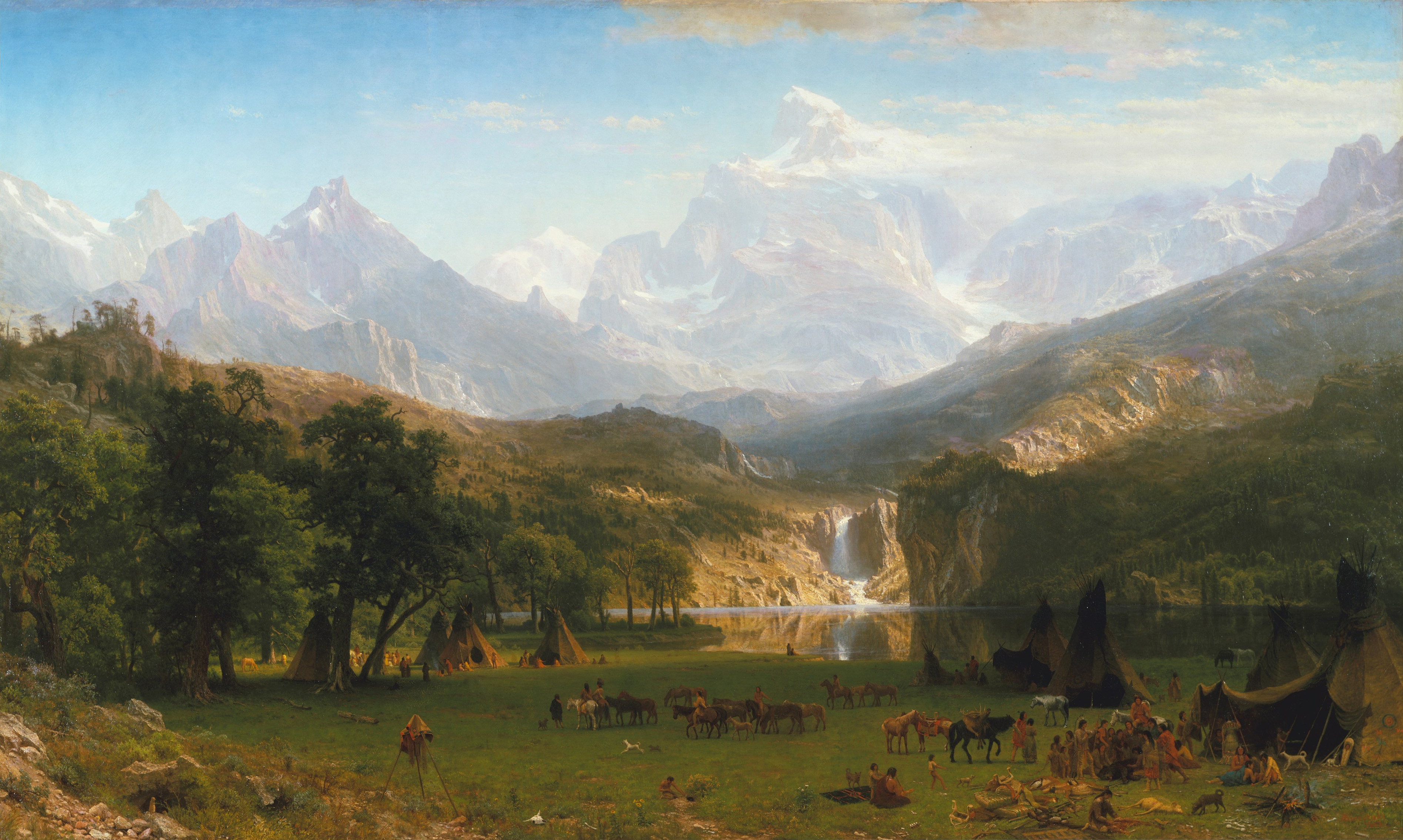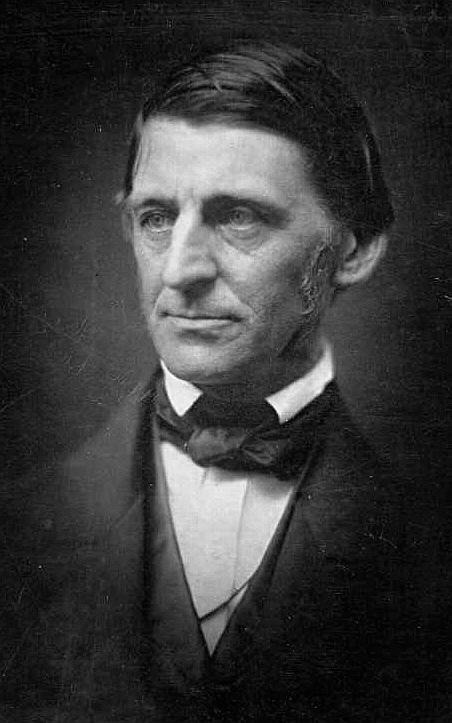The Wild West. There is something evocative about cowboys and Indians, big, open spaces, horseback rides, gunfights and barfights. The period of the Old West is a mythic period, yet also one that seems particularly close to us, particularly recent. As a comparatively lawless zone, it enables a more fluid morality, placing responsibility into the hands of individuals. As a place of violence, it makes us think more explicitly about the nature of human life and of its destiny. Westworld’s first season is probably my favourite television series; Butcher’s Crossing is one of my favourite books. Cormac McCarthy’s All the Pretty Horses is another excellent Western, one consciously concerned with the way we construct and think of myth. As a coming-of-age story it is less brutal than McCarthy’s earlier Blood Meridian, but it still forces us to confront the truth of a harsh world.
Growing up is a matter of finding the truth beneath illusions. The Wild West is perhaps one of the ultimate illusions. It is a series of legends obscuring one of the most brutal periods of a brutal country, where murder, rape, and pillage were nothing and where whole cultures were annihilated at the pull of a trigger. John Grady, the sixteen-year-old hero of All the Pretty Horses, discovers the terrible vacuum underneath his idea of the world. His story is not a rejection of the West, but one where he becomes the kind of man who can survive in the West as it actually existed. It is the origin story of a real cowboy.

The Plot: The Cowboys and their Trip
All the Pretty Horses takes place shortly after the end of the Second World War, a time long beyond the end of the Wild West by most reckonings. The story begins with the funeral of John Grady’s maternal grandfather, the last male of the Grady line. Although his last name is Cole, after his father, John Grady’s respect for his grandfather leads him to go by his grandfather’s name instead. It is the first act of controlling one’s own identity featured in the book.
All is not well for the cowboys in the post-war period. The ranch where John Grady grew up is being sold, and both his mother and father are unable to provide parental support. Even his relationship with a local girl doesn’t seem worth bothering over anymore. Meanwhile, the landscape of great open spaces is becoming enclosed and dotted with oil derricks, as America consolidates its post-war economic ascendency. And so, with his friend Lacey Rawlins, and their horses, Redbo and Junior, in tow John Grady decides to head to Mexico in search of a better life.
“If I don’t go will you go anyways?”
John Grady sat up and put his hat on. “I’m already gone,” he said.
McCarthy has such verve for pithy, cinematic one-liners, and indeed his prose style as a whole owes much to cinema, with its emphasis on framing shots of its characters, often from unusual angles. People are often described not as they are, but how they are seen reflected within a window or glass object. In addition to being very cool, this flourish draws our attention to a certain distance between reality and our perception of it. Which is one of the key ideas of the book.
John Grady and Rawlins are always thinking of themselves through the lens of the Wild West and its myths. When they encounter a fellow escapee, a boy called Jimmy Blevins riding on a horse that is almost certainly stolen, they wonder whether they look like desperados to him. When they get new boots they are particularly excited because it appears that now they will really look like cowboys.
John Grady and Rawlins make it to Mexico. They start work on a big hacienda, or large estate. And John Grady falls in love with the owner’s daughter, a beautiful young lady named Alejandra. When she reciprocates his feelings, the scene is set for a passionate and illicit romance, but McCarthy allows us no rest, sending his story into Mexican prisons, through gunfights, and much more besides. Along the way John Grady becomes a real cowboy – scarred, rough, and more than a little heroic.
Truth
Becoming a cowboy is not just a question of going to Mexico, or stealing a horse. It is to engage in the mythmaking process that characterises the Wild West. If Blood Meridian was a shattering of our illusions about the West, All the Pretty Horses shows us how myths can instead be constructed. Thrown in jail because of his association with Blevins, initially John Grady speaks the truth as he understood it, explaining that he has nothing to do with Blevins’ criminal misdeeds to the police captain. It does not work. “You see. We can make the truth here. Or we can lose it”, says the captain. The character of the captain represents authority, embodying the truism that history is written by the victors. John Grady tries to protect his personal truth at first, but it is impossible to maintain that against the strong powers of the world.
When revenge comes, John Grady no longer describes the truth. He says what needs to be said to create a legend – he makes a legend out of himself, without consideration for whether strictly speaking what he says is true. For after all, who cares about the truth? Certainly not the captain, whose whole life is built upon the shame that came from a single moment of cowardice. The Wild West is a place where survival is difficult for those who are merely themselves. But for those who can stretch themselves into the boots of a myth, so long as they can shoot a rifle too, those people will flourish. Perhaps.
Nature and the World
“In the end we all come to be cured of our sentiments. Those whom life does not cure death will. The world is quite ruthless in selecting between the dream and the reality, even where we will not. Between the wish and the thing the world lies waiting.”
These words come from Alejandra’s grandmother, and they speak the central truth of All the Pretty Horses. Whatever hopes we may have, whatever dreams, they will prove worthless and firewood for an uncaring world. Early in the novel there is a bush into which countless little birds have been blown and impaled by the force of a great storm. It’s nothing special, just another description among many, but it too hints at the nature of the world. If there is a God, and the characters of McCarthy’s novel aren’t entirely sure on that front, then He doesn’t seem to care very much for his creation.
If anything, McCarthy sees the world as shaped by Man, and Man’s violence. I use the old-fashioned Man in part because McCarthy’s world is a Man’s world, and men are to blame for it. All the Pretty Horses is full of the traces of destruction men have wrought. From the oil derricks to the breaking of the horses, there seems no place where we have not brought pain and destroyed sacredness. The wild horses are deprived of their “communion” once they have been captured and broken. I know McCarthy is guilty of using biblical language liberally, but here it is entirely valid – we have broken the natural, spiritual bond of the animals, all that we might make use of them.
At another point McCarthy describes a storm thus: “as if repairs were under way at some flawed place in the iron dark of the world.” Our world is made unnatural, industrial, by the simile. Yet who can say that the world we live in now is natural anymore? So much of it is covered by the traces of Man and his violence. The deepest desert has scraps of blue and black from discarded plastic. It is hard to be proud of ourselves, knowing both what we are capable of, and what we as a people have already managed.
The Values in the World
All the Pretty Horses does not suggest things will get better, either – it is no narrative of progress: “No creature can learn that which his heart has no shape to hold”, and our hearts are not build for peace. We may transition from horses to pickups, from carriages to airplanes, but in the end one thing remains – we are a violent species, and we like war.
Yet unlike, I think, Blood Meridian, All the Pretty Horses is a relatively positive book, finding in the amoral world values worth holding on to. First of all, and unmistakable, is beauty. It is somewhat silly to mention it, but even the novel’s title suggests this. And McCarthy’s style is awesome. It takes some getting used to, especially because it is so brazen in its approach – deliberately biblical, experimental, raw. But once we start running along McCarthy’s tracks, so to speak, we notice moments and phrases of such beauty that they make one want to cry:
“She rode with her hat pulled down in the front and fastened under her chin with a drawtie and as she rode her black hair twisted and blew about her shoulders and the lightning fell silently through the black clouds behind her and she rode all seeming unaware down through the low hills while the first spits of rain blew on the wind and onto the upper pasturelands and past the pale and reedy lakes riding erect and stately until the rain caught her up and shrouded her figure away in that wild summer landscape: real horse, real rider, real land and sky and yet a dream withal.”
That last clause is so unbelievable. I mean, it doesn’t even have to mean anything – it just sounds so good that I cannot get it out of my head.
And besides beauty, there are virtues too. Even old-world Wild West virtues. John Grady sticks up for the little guy; he tolerates no abuses of unearned authority; he is heroic and fearless. He falls in love and doesn’t let society get in the way, and he is a good friend to Rawlins. Even if his world is dying, John Grady is still a good guy by its own value system.

Conclusion
I write this review in the desert sands of Jordan, the place of my own little Wild West adventure. All the Pretty Horses is one of those books I know I will read again. It contains that richness that always disheartens me when I try to write about books for this blog – there is simply too much to say, and what I write can do justice to almost nothing of the book’s power.
I love the easy themes, of loyalty and friendship and love, just as much as I love the darker, or more complex ones, hidden beneath the surface of the work, such as the ambiguous position of American power, or the bleak and empty moral content of the world. Most of all, perhaps, I love the language. Whether it is the pithiness of John Grady’s one-liners or the epic sweep of McCarthy’s landscapes and storms, All the Pretty Horses is a beautiful book.



